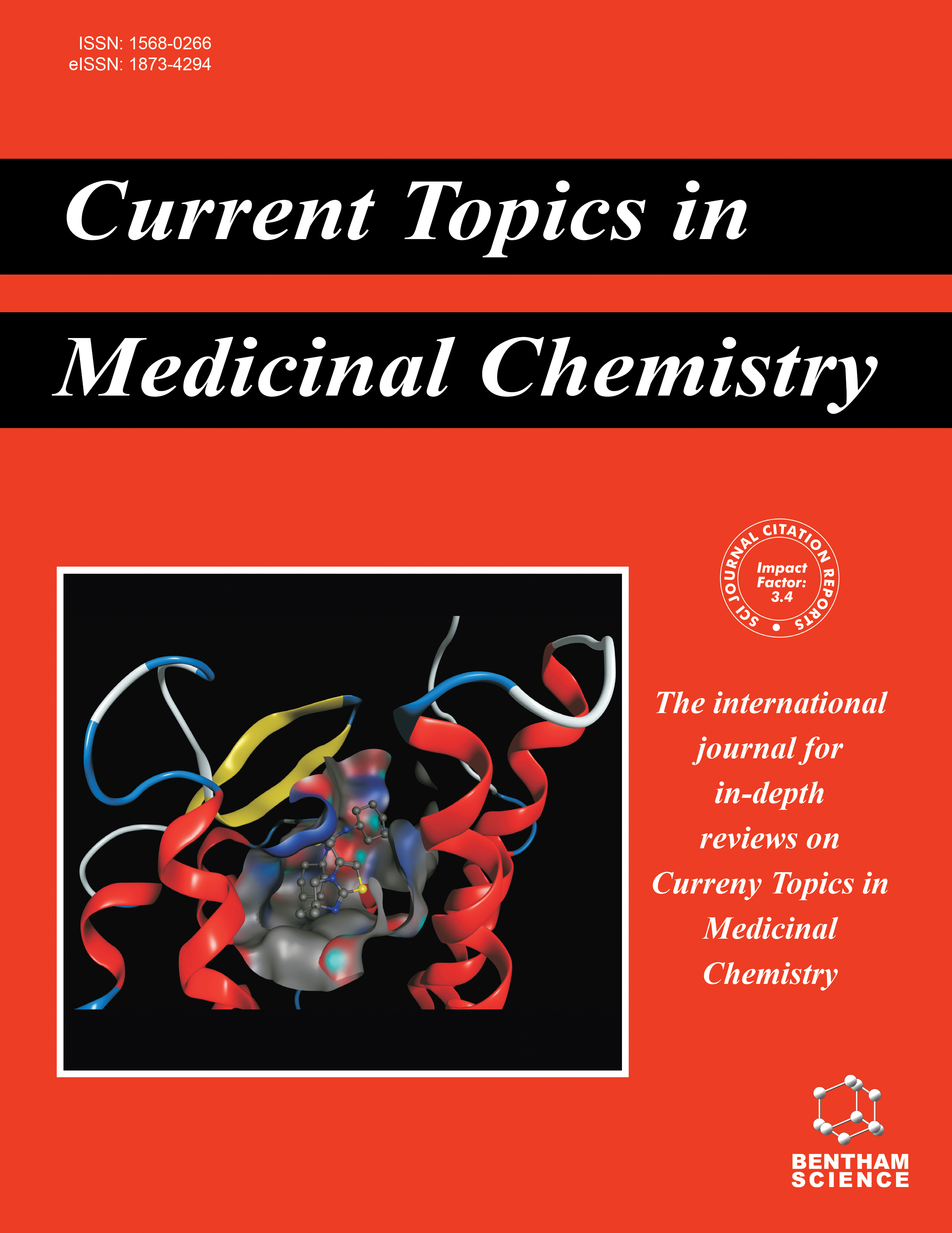Current Topics in Medicinal Chemistry - Volume 22, Issue 24, 2022
Volume 22, Issue 24, 2022
-
-
Antibiotics’ Sustainability: Another Issue in the Fight against Antimicrobial Resistance
More LessAuthors: Silvia Buroni and Laurent R. ChiarelliThe spread of antimicrobial resistance (AMR) is still a major threat to global health that is likely to worsen also as a consequence of the COVID-19 pandemic. For this reason, there is an urgent need to develop new compounds and novel alternative treatments. Furthermore, the new lines of action must consider the issue of antibiotics’ sustainability. Within this persrective, we have highlighted the main points on which actions in this perspective are possible.
-
-
-
Medicinal Chemistry of Inhibitors Targeting Resistant Bacteria
More LessThe discovery of antibiotics was a revolutionary feat that provided countless health benefits. The identification of penicillin by Alexander Fleming initiated the era of antibiotics, represented by constant discoveries that enabled effective treatments for the different classes of diseases caused by bacteria. However, the indiscriminate use of these drugs allowed the emergence of resistance mechanisms of these microorganisms against the available drugs. In addition, the constant discoveries in the 20th century generated a shortage of new molecules, worrying health agencies and professionals about the appearance of multidrug-resistant strains against available drugs. In this context, the advances of recent years in molecular biology and microbiology have allowed new perspectives in drug design and development, using the findings related to the mechanisms of bacterial resistance to generate new drugs that are not affected by such mechanisms and supply new molecules to be used to treat resistant bacterial infections. Besides, a promising strategy against bacterial resistance is the combination of drugs through adjuvants, providing new expectations in designing new antibiotics and new antimicrobial therapies. Thus, this manuscript will address the main mechanisms of bacterial resistance under the understanding of medicinal chemistry, showing the main active compounds against efflux mechanisms, and also the application of the use of drug delivery systems, and finally, the main potential natural products as adjuvants or with promising activity against resistant strains.
-
-
-
Exploring the Role of Antioxidants to Combat Oxidative Stress in Malaria Parasites
More LessAuthors: Sisir Nandi, Sarfaraz Ahmed and Anil K. SaxenaBackground: Malaria, a global challenge, is a parasitic disease caused by Plasmodium species. Approximately 229 million cases of malaria were reported in 2019. Major incidences occur in various continents, including African and Eastern Mediterranean Continents and South-East Asia. Introduction: Despite the overall decline in global incidence from 2010 to 2018, the rate of decline has been almost constant since 2014. The morbidity and mortality have been accelerated due to reactive oxygen species (ROS) caused by oxidative stress generated by the parasite responsible for the destruction of host metabolism and cell nutrients. Methods: The excessive release of free radicals is associated with the infection in the animal or human body by the parasites. This may be related to a reduction in nutrients required for the generation of antioxidants and the destruction of cells by parasite activity. Therefore, an intensive literature search has been carried out to find the natural antioxidants used to neutralize the free radicals generated during malarial infection. Results: The natural antioxidants may be useful as an adjuvant treatment along with the antimalarial chemotherapeutics to reduce the death rate and enhance the success rate of malaria treatment. Conclusion: In this manuscript, an attempt has been made to provide significant insight into the antioxidant activities of herbal extracts against malaria parasites.
-
-
-
Natural Antioxidants as Additional Weapons in the Fight against Malarial Parasite
More LessAuthors: Sharma A. Virendra, Chandrakant Sahu, Ankur Kumar and Pooja Abrol ChawlaBackground: All currently available antimalarial drugs are developed from natural product lineages that may be traced back to herbal medicines, including quinine, lapachol, and artemisinin. Natural products that primarily target free radicals or reactive oxygen species, play an important role in treating malaria. Objectives: This review analyses the role of antioxidative therapy in treating malaria by scavenging or countering free radicals and reviews the importance of natural plant extracts as antioxidants in oxidative therapy of malaria treatment. Methods: The search for natural antioxidants was conducted using the following databases: ResearchGate, ScienceDirect, Google Scholar, and Bentham Science with the keywords malaria, reactive oxygen species, natural antioxidants, and antiplasmodial. Conclusion: This study reviewed various literature sources related to natural products employed in antimalarial therapy directly or indirectly by countering/scavenging reactive oxygen species published between 2016 till date. The literature survey made it possible to summarize the natural products used in treating malaria, emphasizing botanical extracts as a single component and in association with other botanical extracts. Natural antioxidants like polyphenols, flavonoids, and alkaloids, have a broad range of biological effects against malaria. This review is pivoted around natural antioxidants obtained from food and medicinal plants and explores their application in restraining reactive oxygen species (ROS). We anticipate this article will provide information for future research on the role of antioxidant therapy in malaria infection.
-
Volumes & issues
-
Volume 25 (2025)
-
Volume 24 (2024)
-
Volume 23 (2023)
-
Volume 22 (2022)
-
Volume 21 (2021)
-
Volume 20 (2020)
-
Volume 19 (2019)
-
Volume 18 (2018)
-
Volume 17 (2017)
-
Volume 16 (2016)
-
Volume 15 (2015)
-
Volume 14 (2014)
-
Volume 13 (2013)
-
Volume 12 (2012)
-
Volume 11 (2011)
-
Volume 10 (2010)
-
Volume 9 (2009)
-
Volume 8 (2008)
-
Volume 7 (2007)
-
Volume 6 (2006)
-
Volume 5 (2005)
-
Volume 4 (2004)
-
Volume 3 (2003)
-
Volume 2 (2002)
-
Volume 1 (2001)
Most Read This Month


